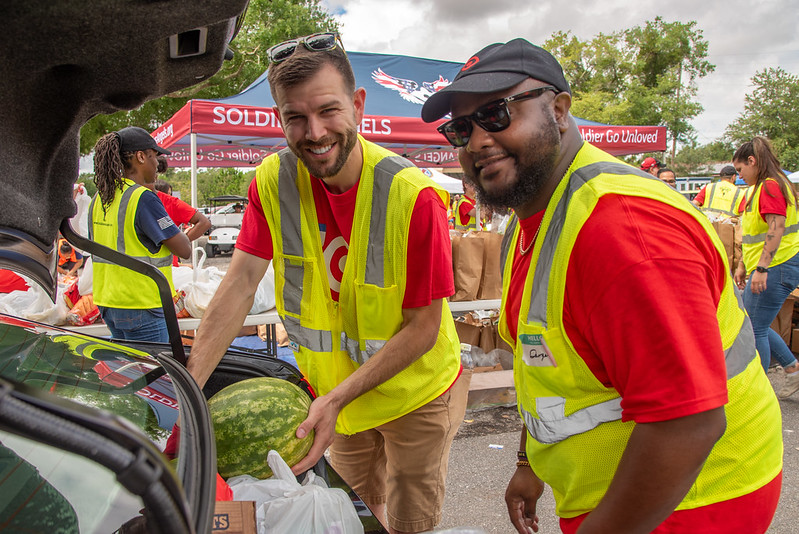
National Nutrition Month (NNM) started as National Nutrition Week in 1973. Interest and excitement grew, and National Nutrition Month was inaugurated in 1980. From the beginning, National Nutrition Week was enthusiastically embraced by the Academy of Nutrition and Dietetics (AND). VA Dietitians around the country celebrate National Nutrition Month by providing exciting educational opportunities for our Veterans such as nutrition fairs, games, contests, and blog posts.
This year’s NNM theme, “Get Your Plate in Shape,” focuses on creating well-balanced meals by including each food group in the appropriate portion size. The USDA’s MyPlate method helps people consume a variety of foods. Half our plate should be filled with various deeply colored fruits and vegetables because they contain higher concentrations of vitamins, minerals, and antioxidants. Different colors provide different benefits—so eat a variety! The other half of your plate should contain your grains and protein. Try to make half of the grains you eat whole grains by switching to whole wheat pasta, bread, crackers, and brown rice. The higher fiber content of these foods will help you stay fuller longer. In addition, be sure to choose lean meats such as fish, chicken or turkey breast, and lean cuts of beef or pork. Finally, including low fat dairy products as a part of a healthy diet is not only a good source of Calcium but can also promote weight loss.
If you are a Veteran and would like to learn more about shaping up your plate by using the MyPlate method or to see what the dietitians are doing at your VA Medical Center, contact your primary care provider and ask to see your VA Registered Dietitians (RD). VA RDs offer individual counseling or group classes and can be helpful in managing and preventing obesity, diabetes, heart disease and many other chronic illnesses.
For more information on National Nutrition Month, visit: www.eatright.org/nnm
Jennifer Scandariato is a graduate of University of New Haven where she pursued a degree in Nutrition and Dietetics. She is currently a Dietetic Intern at the James A. Haley Veterans’ Hospital in Tampa, where she is completing her supervised practice in order to earn her credentials as a Registered Dietitian.
Topics in this story
More Stories
Soldiers' Angels volunteers provide compassion and dedication to service members, Veterans, caregivers and survivors.
Veterans are nearly three times more likely to own a franchise compared to non-Veterans.
The Social Security Administration is hoping to make applying for Supplemental Security Income (SSI) a whole lot easier, announcing it will start offering online, streamlined applications for some applicants.







Veterans should be made aware of the VA Move Program, which is a no cost program that teaches Veterans how to maintain a healthy life style. Classes run from 6 to 8 weeks, just one day per week and thet have a monthly support group meeting. I have been in the program since Dec 2010 and have lost 45 lbs. I now work as a volunteer in the program to assist other Veterans. Check out this website for more informatio.
http://www.move.va.gov